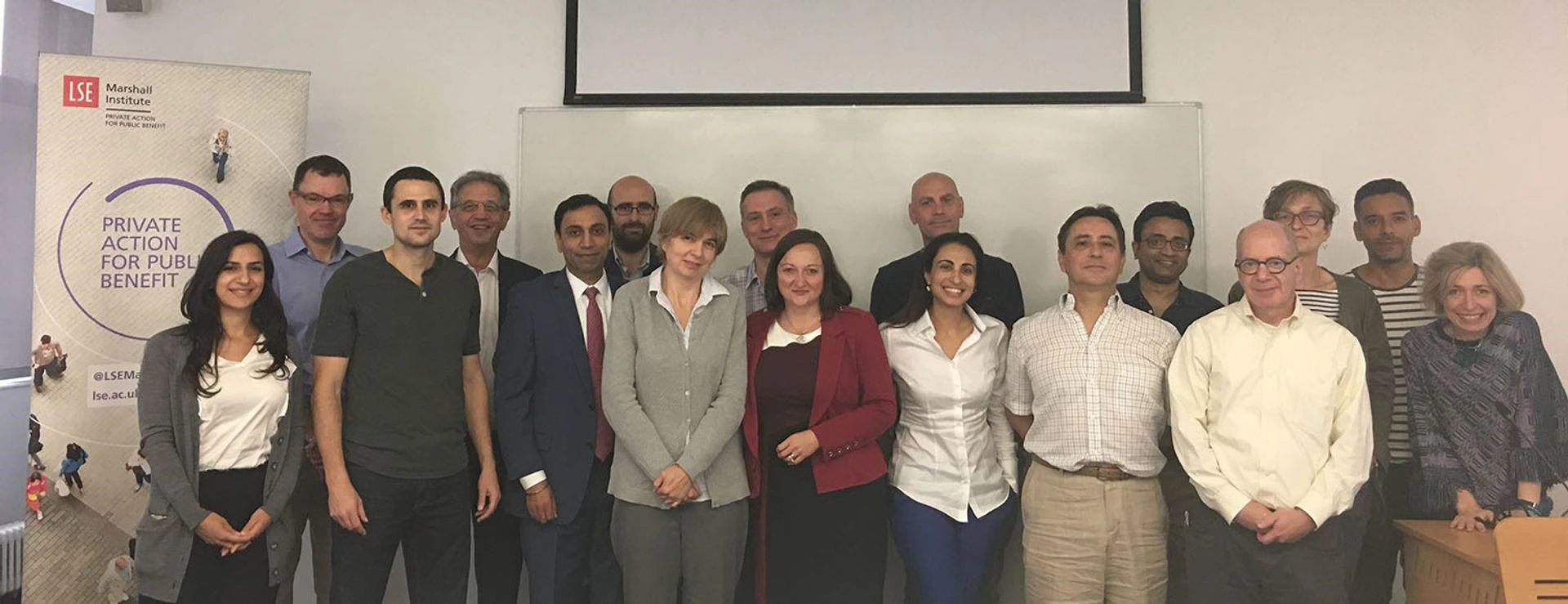Closing Remarks

Economics of Social Sector Organisations conference 2017
Author: Professor Sir Julian Le Grand Marshall Institute
I have been impressed and excited by this conference. This, of course, is partly because of the quality of the papers and of the session discussions. But it is also because I think it is part of something that is close to a revolution in economic analysis and indeed in the wider society.
Let me explain. When I studied microeconomics at the University of Pennsylvania as part of my PhD, it was very largely based on Paul Samuelson’s Foundations of Economic Analysis. The central idea of that pioneering book was that economic behaviour could be best understood as the outcome of a constrained optimisation exercise. Economic agents, whether consumers or firms, had a simple objective function - utility in the case of consumers, profits in the case of firms – that they maximised subject to the constraint of limited resources.
Now recent developments in economics, particularly the growth of behavioural economics, has challenged a number of elements of this idea. First, behavioural economists have argued that agents don’t necessarily maximise, and that, where they do, they do not seem to do so in a fashion that generally conforms to the ‘rationality’ axioms that underlie conventional price theory. Second, and of direct relevance to this conference, the assumption of a simple objective function has been challenged. Both individuals and firms are recognised as having multiple aims that guide their behaviour, ones that often conflict and hence necessitate trade-offs. Thus individuals have a concern for others’ well-being as well as their own; firms have an interest in social and, increasingly, environmental impact as well as in their profits.
These conference papers are shining examples of this second challenge to the conventional wisdom. Thus Adair Morse and colleagues’ paper investigates the social motivation of private investors, while Tim Besley and Maitresh Ghatak’s papers explore non-pecuniary motivations among workers and the role of organisational culture in affecting organisational performance. Vikramadayita Khanna, Caroline Flammer and colleagues examine corporate social responsibility. Patrick Francois and colleagues examine the possible origins of altruistic behaviour towards non-kin, and Paul Niehaus investigates the relationship between the behaviour of individual altruists and the outcomes of that behaviour.
What makes this kind of work particularly exciting is that it is not only a harbinger of something of a revolution in economics but also reflects significant changes in the wider society. At our first session, when we went to visit Mustard Seed, we heard about the practical experience of investors and entrepreneurs whose aim was not just to make money but in addition - indeed even primarily - to have a beneficial impact on society. They illustrate the development of a new type of organisation: the hybrid. Hybrids are organisations with not just one bottom line but several; not just profit but also social and environmental. The growth of social enterprises and public service mutuals; the spread of corporate social responsibility and of strategic philanthropy; the development of new financial instruments, such as social impact bonds; all are examples of organisations with multiple objectives in action.
So this conference has illustrated a different kind of economics, one that analyses an important kind of economic behaviour – one that is on the rise and that has historically been relatively unexamined. As one who has worked for some time in this area, I find it all very encouraging. Long may it continue: onwards and upwards!